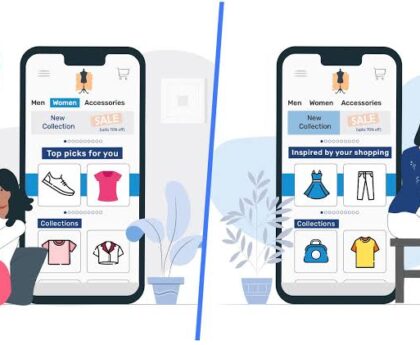
In the fast-paced world of social media, staying authentic while marketing is crucial. But how do brands balance influence and transparency?This blog explores marketing ethics and the importance of genuine connections in the digital age.
Learn how to build trust, avoid misleading tactics, and create ethical marketing strategies that align with your brand values.
Stay ahead with marketing ethics and ensure long-term success in a world driven by credibility.
Table of Contents:
- Introduction: Why Marketing Ethics Matter In The Digital Age
- The Rise Of Influencer Culture & Marketing Ethics
- Key Pillars Of Ethical Marketing
- How To Build An Authentic Brand Online With Marketing Ethics
- Common Pitfalls In Digital Marketing Ethics
- A Future Built On Trust- Marketing Ethics Done Right
Why Marketing Ethics Matter In The Digital Age

Marketing has evolved, but one thing remains constant—trust. In an era dominated by social media and digital influence, brands must prioritise marketing ethics to build credibility. Consumers today are more aware than ever, questioning brand claims, influencer promotions, and the authenticity of content they consume.
Ignoring marketing ethics can damage a brand’s reputation, while ethical marketing fosters long-term relationships and customer loyalty. But how do brands ensure ethical marketing practices while competing for attention? Let’s explore.
The Rise Of Influencer Culture & Marketing Ethics
Social media has given birth to a powerful influencer economy. Brands collaborate with influencers to promote products, but ethical concerns arise when:
- Influencers fail to disclose paid partnerships.
- False claims mislead consumers.
- Brands push unrealistic beauty or lifestyle standards.
Authenticity matters. Consumers trust influencers who are honest about their partnerships. Transparency is not just a legal requirement but also a vital part of marketing ethics. Disclosures, honesty, and responsible promotions help maintain credibility.
Key Pillars Of Ethical Marketing
Ethical marketing isn’t just about following regulations—it’s about creating genuine connections. Here are the core principles:
1. Transparency & Honesty
Honesty builds trust. Brands must provide accurate product information and avoid exaggerated claims. Whether it’s influencer marketing or direct advertising, transparency in messaging is key to maintaining marketing ethics.
2. Authentic Storytelling
Consumers resonate with real stories, not scripted narratives. Ethical marketing involves showcasing genuine experiences, testimonials, and brand values that align with your audience’s expectations.
3. Respect for Consumer Privacy
Data privacy is a growing concern. Ethical marketers respect consumer data, obtain consent, and avoid invasive tactics like unauthorized tracking or excessive retargeting.
4. Social Responsibility
Brands must contribute positively to society. Whether through sustainability efforts, inclusivity, or ethical sourcing, social responsibility strengthens consumer trust and enhances brand reputation.
How To Build An Authentic Brand Online With Marketing Ethics
In the digital world, authenticity is the foundation of a strong brand. Here’s how businesses can stay true to their values while implementing marketing ethics:
1. Align Your Marketing with Brand Values
Your marketing strategies should reflect your brand’s mission. Consumers appreciate consistency between what a brand promotes and what it practices.
2. Prioritize Customer Engagement Over Sales
Instead of aggressive promotions, focus on meaningful interactions. Engaging with your audience through thoughtful content, responding to queries, and encouraging feedback fosters trust.
3. Avoid Clickbait & Misleading Tactics
Nothing erodes trust faster than deceptive marketing. Ensure your headlines, promotions, and product descriptions reflect reality rather than exaggerated claims.
4. Partner with Ethical Influencers
Choose influencers who genuinely believe in your product rather than those focused purely on monetary gain. Authentic partnerships align with business ethics and create long-lasting consumer trust.
Common Pitfalls In Digital Marketing Ethics
Despite the best intentions, some brands fall into unethical practices. Here’s what to avoid:
1. Fake Reviews & Testimonials
Consumers can spot fake reviews. Brands that manipulate ratings damage their credibility and risk legal repercussions.
2. Exploitative Social Media Tactics
Fear-based marketing, guilt-tripping, or spreading misinformation for engagement violates business ethics. Instead, focus on value-driven content.
3. Over-Personalized Advertising
While personalisation enhances user experience, excessive tracking can feel invasive. Strike a balance between personalised marketing and consumer privacy.
4. Greenwashing & False Sustainability Claims
Consumers appreciate sustainability, but misleading claims about eco-friendliness harm your reputation. Ensure all claims are backed by real efforts.
A Future Built On Trust – Marketing Ethics Done Right
The digital world is constantly evolving, and ethical marketing is no longer optional—it’s essential. Brands that prioritise marketing ethics stand out as industry leaders, earning customer loyalty and long-term success.
By embracing transparency, authenticity, and responsible marketing practices, businesses can build trust and credibility in an increasingly skeptical market.
Are you ready to create an ethical, authentic brand? Start by evaluating your marketing strategies, ensuring they align with business ethics, and committing to transparency. Ethical marketing isn’t just good for consumers—it’s great for business.





